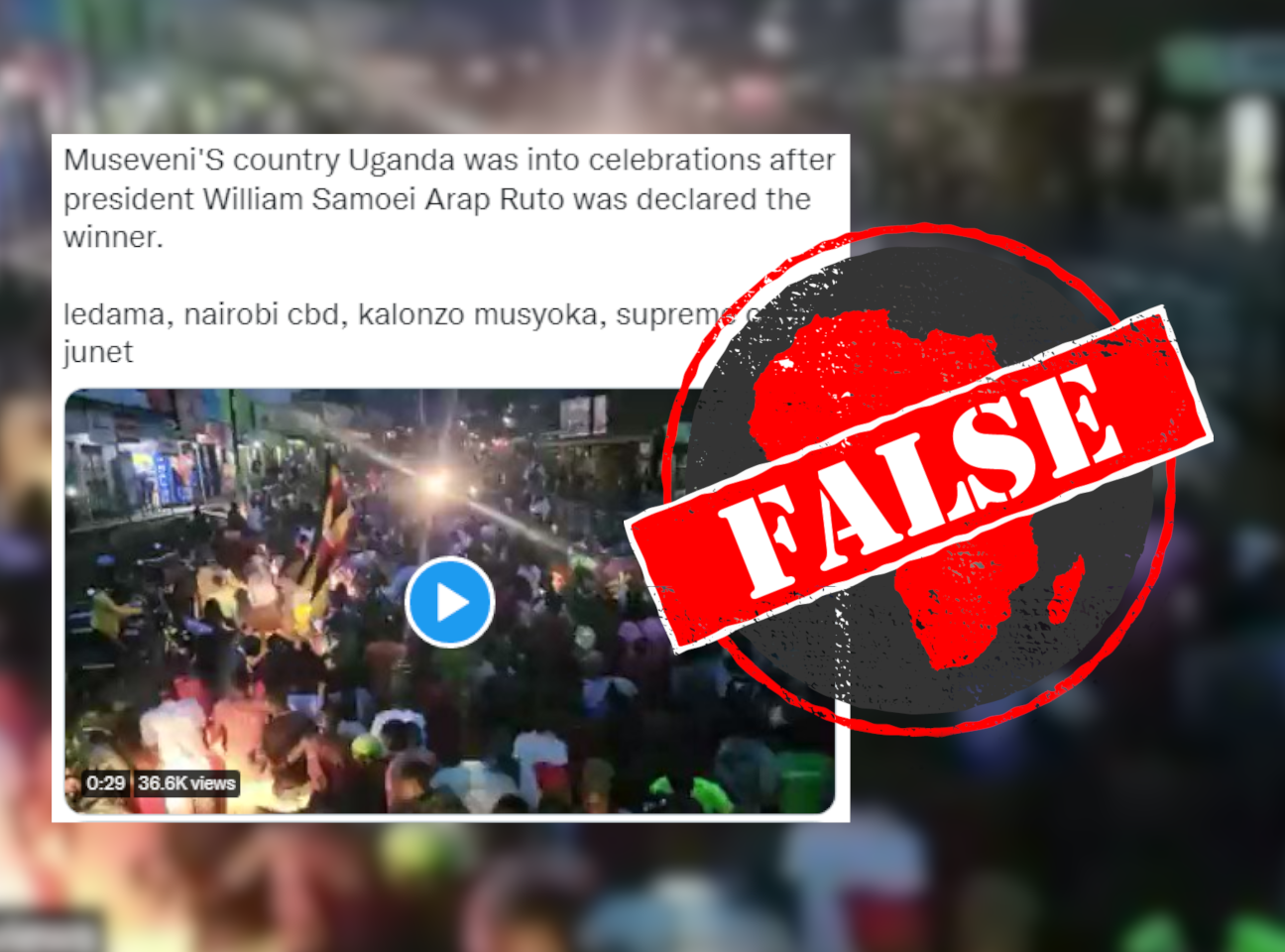A video of a large crowd of people singing and dancing, waving the flag of Uganda, is circulating on Twitter with the claim that they are celebrating the electoral commission announcement that William Ruto had won Kenya’s 9 August 2022 presidential election.
One Twitter user captioned the video: “Museveni's country Uganda was into celebrations after president William Samoei Arap Ruto was declared the winner.”
Yoweri Museveni is president of Uganda, which borders Kenya to the west.
The announcement of Ruto’s win, which is being challenged in court, was celebrated in many Kenyan towns.
But does the video show Ugandans also celebrating his victory? We checked.

Kapchorwa celebrates its Commonwealth Games athletes
We did not find any media reports of people in Uganda celebrating the election outcome.
One user tweeted “fake news” in response to the claim, and shared a similar video posted on Twitter on 11 August. It’s captioned: “This is how we did it. This is how we welcomed the Athletes back from the #CommonwealthGames2022.”
We then searched Facebook for the caption: “This is how we did it. This is how we welcomed the Athletes back from the #CommonwealthGames2022.”
This yielded a similar video posted on 11 August by a group known as Sebei Nation, which is based in the eastern Ugandan town of Kapchorwa.
The page also has photos of athletes from Kapchorwa.
Another video with similar scenes was uploaded on YouTube, titled “people welcoming Jacob kiplimo back home kapchorwa Uganda”.
Kiplimo is one of Uganda’s foremost athletes, winning two gold medals in thrilling fashion at the 2022 Commonwealth Games in Birmingham, UK. He comes from the Kapchorwa region.
The video shows people in Uganda celebrating athletes’ return from the Commonwealth Games – not Kenyan president-elect Ruto’s win.
Republish our content for free
For publishers: what to do if your post is rated false
A fact-checker has rated your Facebook or Instagram post as “false”, “altered”, “partly false” or “missing context”. This could have serious consequences. What do you do?
Click on our guide for the steps you should follow.
Publishers guideAfrica Check teams up with Facebook
Africa Check is a partner in Meta's third-party fact-checking programme to help stop the spread of false information on social media.
The content we rate as “false” will be downgraded on Facebook and Instagram. This means fewer people will see it.
You can also help identify false information on Facebook. This guide explains how.





Add new comment